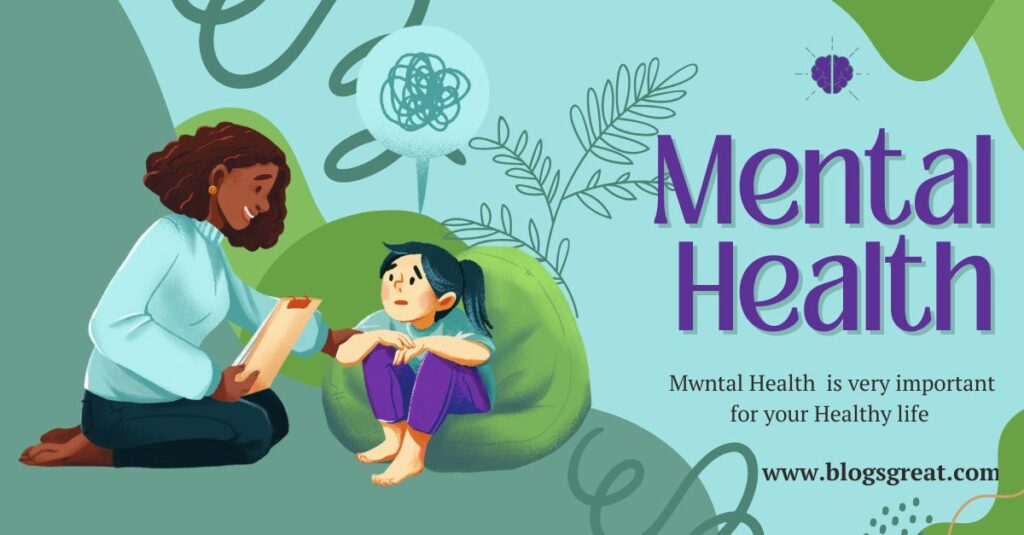In a world that always moves at full speed, where success is often measured what we achieve, how much we have, and how much we like on social media, mental health tips has become a quiet crisis. Despite increasing awareness, it is still a topic that is often misunderstood, stained or just ignoring. Still, mental health is just as important – if not more than our physical health. This post here is to shed light on why mental health means something, we can all come together to create a healthy, more kind world.

The State of Mental Health Today
Problems with mental health are more widespread than ever. According to the World Health Organization (WHO), one of the four persons globally will be affected by mental or neurological disorders at some point in life. Depression and anxiety are responsible for an important part of the global burden of the disease alone, where millions of people struggle daily. The Covid-19 epidemic increased these problems, isolated individuals, disturbed the routine and increased feelings of uncertainty and fear.
Despite these shocking figures, mental health is often considered later later. Many people suffer in silence, fear of talking about decision, discrimination or misunderstanding. The stigma around mental health can be weak as conditions, which prevents individuals from demanding their help.
Why Mental Health Matters
Mental health is the basis for our general welfare. It affects how we think, feel and act in our daily lives. This affects our ability to handle our conditions, our work and stress and adversity. Poor mental health can be a variety of problems, including physical illnesses, medications and even suicide. On the other hand, good mental health tips enables us to realize our full potential, create meaningful connections and contribute to our local communities.
Mental health is not just the absence of mental illness. This is a welfare situation where individuals can also enjoy the challenges. It is about flexibility, self -awareness and ability to navigate the ups and downs of life with grace and strength.
The Stigma Surrounding Mental Health
One of the biggest obstacles to addressing mental health is a stigma that surrounds it. Many people view mental health problems as a sign of weakness or personal failure. This misunderstanding is the depth of many cultures, where taking help from mental health is often seen as prohibited.
The media has played a role in eliminating these stereotypes, which often depict individuals with mental health conditions as dangerous or unpredictable. It not only separates those who are struggling, but also open interactions about mental health.
The truth is that the questions about mental health tips can affect anyone, be it age, gender, race or socio -economic state. They are not a reflection of character or value, but a complex difference in biological, psychological and environmental factors.

Breaking the Silence
The first step towards addressing the mental health crisis is to break silence. We need to normalize interactions about mental health and make a safe place where people feel comfortable sharing their experiences without fear of decision. It begins with education and consciousness.
Schools, jobs and communities should prefer mental health tips education, individuals should learn how to identify signs of mental health problems and seek help. Especially the employer is a responsibility to promote an auxiliary environment that prioritizes welfare for the employee.
Social media can also play a strong role in destroying mental health. By sharing personal stories and resources, we can create a sense of solidarity and remind others that they are not alone in their matches.
The Role of Self-Care
While systemic changes are necessary, personal actions also mean somewhat. Practicing self -care is one of the most effective ways to maintain good mental health. In this, preference for sleep, eating balanced diet, exercising regularly and engaging in activities that provide joy and fulfillment.
Mindfulness and meditation have been shown a positive effect on mental health, which helps individuals to deal with stress and cultivate a sense of inner peace. It is important to remember that self -care is not selfish; It is an important function of self -protection.
Seeking Help
If you or someone you are struggling with mental health problems, it is important to seek help. This can mean talking to a reliable friend or family member, now a mental health tips provider or contact a guide. It is no shame to ask for help, and to do so is a sign of strength, not weakness.
Therapy and consultation can provide valuable equipment and sexual mechanisms for dealing with mental health conditions. In some cases, the substance may also be necessary. The key is to find a treatment plan that works for you and to remember that recovery is a trip, not a destination.
A Call to Action
Mental health is a collective responsibility. This requires a change that we think, speak and work. Governments should invest in mental health services and ensure that they are available to everyone. The communities should come together to support the needy people. And individuals should prefer their own mental health and expand grace to others.
We can no longer risk mental health as a secondary concern. This is the time to break silence, challenge the stigma and create a world where everyone gets an opportunity to bloom. Together we can prioritize mental health and create a future where no one must suffer in silence.
Conclusion
Mental health is not a luxury; This is a requirement. This is the cornerstone of our good and the key to living a full life. By raising awareness, challenging stigma and prioritizing self -care, we can create a society that gives as much significance for mental health as physical health. Let’s take this journey together, a conversation, a goodness of goodness and one step at a time. The time to shop is now.

